
Because of the coronavirus, the skies are bluer, and my vision has improved.
Do those assertions sound crazy? Well, they probably do; but I can demonstrate that they are, if not literally true, logically justifiable. It is an undoubted scientific fact that one result of the lockdown was a severe reduction in travel – both flights and on the ground. As a result, pollution levels have dropped significantly, and so the sky is bluer than usual for want of haze. Also, that lack of haze means that I can look out of my bedroom window, and, for the first time in thirty-four years, see clearly to the horizon –in my case, several miles away in north London. So my vision has improved, in the sense that I can see further than I used to.
Now if we choose to be pedantic, it could be said that these effects are not caused by Covid-19 but by our response to it. But on the other hand, if Covid-19 hadn’t happened, our response of less traffic would not have happened, and so the effects would not have happened; so the effects lie at the end of a chain of causation which begins with Covid-19. In other words, without Covid19, these things would not have happened, so it is legitimate to describe Covid-19 as (in some sense) the cause of these effects.
This story is from the {{IssueName}} edition of {{MagazineName}}.
Start your 7-day Magzter GOLD free trial to access thousands of curated premium stories, and 9,000+ magazines and newspapers.
Already a subscriber ? Sign In
This story is from the {{IssueName}} edition of {{MagazineName}}.
Start your 7-day Magzter GOLD free trial to access thousands of curated premium stories, and 9,000+ magazines and newspapers.
Already a subscriber? Sign In

Anselm (1033-1109)
Martin Jenkins recalls the being of the creator of the ontological argument.

Is Brillo Box an Illustration?
Thomas E. Wartenberg uses Warhol's work to illustrate his theory of illustration.
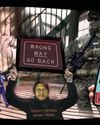
Why is Freedom So Important To Us?
John Shand explains why free will is basic to humanity.
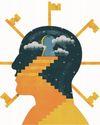
The Funnel of Righteousness
Peter Worley tells us how to be right, righter, rightest.
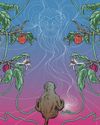
We're as Smart as the Universe Gets
James Miles argues, among other things, that E.T. will be like Kim Kardashian, and that the real threat of advanced AI has been misunderstood.
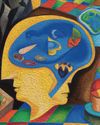
Managing the Mind
Roger Haines contemplates how we consciously manage our minds.
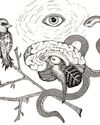
lain McGilchrist's Naturalized Metaphysics
Rogério Severo looks at the brain to see the world anew.
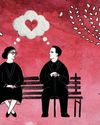
Love & Metaphysics
Peter Graarup Westergaard explains why love is never just physical, with the aid of Donald Davidson's anomalous monism.

Mary Leaves Her Room
Nigel Hems asks, does Mary see colours differently outside her room?
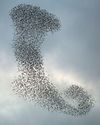
From Birds To Brains
Jonathan Moens considers whether emergence can explain minds from brains.